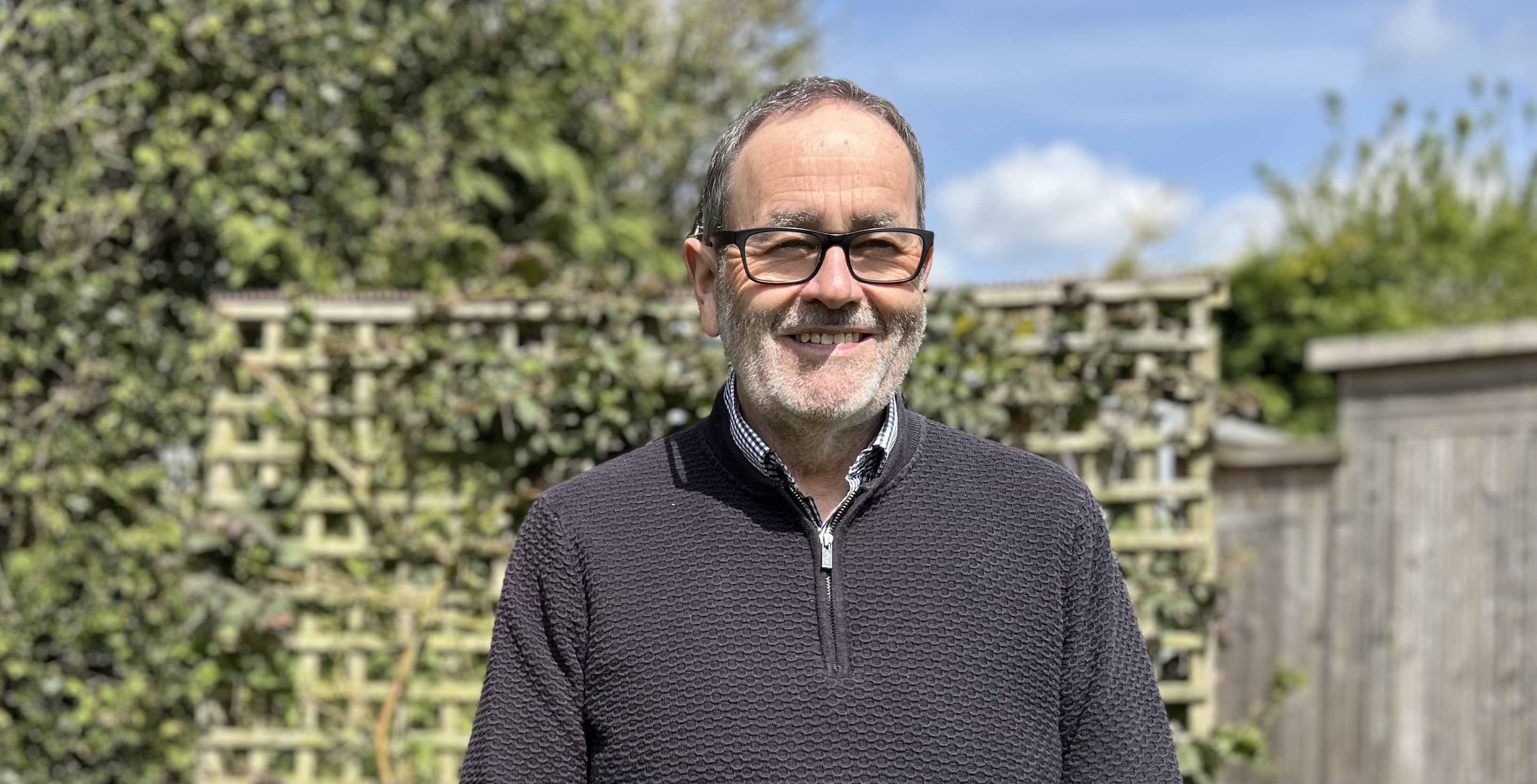
Being more afraid of not being able to swim than fighting, he landed on Gold Beach, Normandy at H Hour + 30 minutes (7.00am).
MIKE CAVE
My father – William Henry Vallis - ‘ Bill’ Cave was a quiet, modest man, born in Dundry, Somerset in 1923; but he and his motorbike were to play a vital and dangerous role in communications during and after the Second World War.
He was working on the family farm at the beginning of the war and, at the age of 19, joined the Royal Signals Regiment, training at Catterick and Kirk Burton. He then volunteered for the Combined Operations force in Beach Signals and Motorcycle Despatch work, in readiness for ‘D’ – Day.
Being more afraid of not being able to swim than fighting, he landed on Gold Beach, Normandy at H Hour + 30 minutes (7.00am). He was in the 50th Division with the Green Howards and 5th East Yorkshire Regiment landing in front of them. The landing craft containing the Beach Signals’ motorbikes had been sunk so they stole some MP’s ones which they had found on the beach until they were taken back five days later!
In his own words, Dad told me the following about his remaining military career, where his motorbike and personal skills were put to valuable use in numerous communications between the British Government and all Indian leaders during the partition of India in 1947.
“After D-Day, I was trained in Jungle warfare in Troon, Scotland and was destined for Burma but on the ship on my way there the Atom Bomb was dropped on Hiroshima and Japan surrendered. We were diverted to India and I was the only one of three men from 20 Beach Signals to go to GHQ Delhi as a special despatch rider to Earl Mountbatten and the Cabinet Mission at the Viceroy’s Palace. What a party! It couldn’t have been better. It was absolutely super, what with two picture shows every week and all the parties with the real top brass from London and I’ve been to all the top people’s homes in India and New Delhi area including those of Gandhi, Nehru and Jinnah many times. They also came to the Palace. I had to wear my blue and white armband upside down so that the military police knew I was on a special mission. There were times when I wondered if I’d get out alive because some places were out of bounds to all troops, but I had to go. I remember being asked to take special papers to Chandni Chowk. When I got to the outskirts, I was met by an Indian courier on a pushbike who took me through so far and then told me to go up a very narrow alleyway and go through a small hole in the wall. The other side of it was a large room with three men with large bushy beards –I had been told to hand the papers to the man in the middle and leave. I went back down the alley to the courier who had waited for me to escort me back to the main road.
I got to know Lord Mountbatten’s daughter, Pamela and took her and her friend with another Despatch Rider on our motorbikes to an oasis some miles out of Delhi for tea and cakes. I suppose it was against the army rules to do this but didn’t hear anything about it!”
Dad came home to Bristol in 1947 – his release papers said “L/Cpl Cave is a very capable Despatch Rider. He was selected to be Special Despatch Rider to the Cabinet Mission in India. A hard and conscientious worker himself, he has proved himself able to control men and to take responsibility. Completely trustworthy and reliable.”
He died on the 21st January 1998 – 55 years to the day that he had joined the Army. It wasn’t until then that I discovered a small torn-out newspaper article in his wallet which said:
‘It is learnt that Mr Gandhi received a letter from Sir Stafford Cripps about 4.30pm on Wednesday. Immediately he sent a reply through special messenger’. That very special man was my father Bill. I remember him as a kind, mild mannered and gentle family man but who was also a brave and loyal servant to his country and I am so very proud of him.